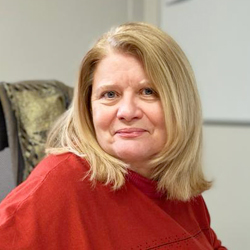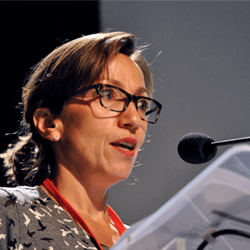EDCTP funder
EDCTP
The EDCTP is a public-public partnership between countries in Europe and sub-Saharan Africa, supported by the European Union. The second EDCTP programme (EDCTP2) runs from 2014-2024 and aims to support collaborative research that accelerates the clinical development of new and improved interventions to prevent or treat poverty-related infectious diseases in sub-Saharan Africa.
In 2019, EDCTP2 called for paediatric drug formulations for poverty-related diseases. The focus of this call is the adaptation of existing medicinal products, including off-patent products, to meet the specific needs of children (up to 17 years of age). The proposed projects should include one or more clinical trials conducted in sub-Saharan Africa to evaluate drug safety, efficacy and pharmacokinetics and develop age-adapted formulations.
Consortium
The Armauer Hansen Research Institute
The Armauer Hansen Research Institute (AHRI), established in 1970 as a leprosy research institute, has made breakthrough contributions in the understanding the immunology and improved treatment for leprosy that has changed the global landscape of leprosy epidemiology. With a change in the epidemiology of leprosy, AHRI expanded its portfolio initially to tuberculosis, participating in trials for the development of the four-fixed dose and nine-month regimens for sensitive and multidrug resistance tuberculosis treatments, respectively.
Reorganised by a decree of the Council of Minister to become a biomedical research arm of the Federal Ministry of Health, AHRI has six directorates: biotechnology, bacterial/viral diseases, tuberculosis/leprosy, non-communicable diseases, malaria/neglected tropical diseases, and clinical trials. Over 50 years, AHRI has developed an international reputation for its expertise, technology transfer and partnership-embracing research agendas.
Réseau Médicaments et Développement
The Réseau Médicaments et Développement, ReMeD, is a French NGO created about 30 years ago that aims to improve the availability, affordability, quality and rational use of medicines in developing countries, through the exchange of information, training and awareness. Based on two pillars, Information and Knowledge, its missions are :
- linking & sharing information between public health actors in the North and South
- informing, raising awareness and new questions for public authorities and civil society
- promoting pharmaceutical expertise in the field
ReMeD’s international network is mainly present in French speaking countries, principally in Francophone Africa, and includes members from pharmaceutical, boards, health executives, African hospital pharmacy networks from the West African Economic and Monetary Union (WAEMU).
Groupe Action Recherche en Santé
The Groupe de Recherche Action en Santé (GRAS) is a private institute based in Burkina Faso and has been conducting health research since 2008. The scientific staff of GRAS is multidisciplinary and has recognised expertise in clinical trials. Over the last decade, they have conducted more than 25 clinical trials for various infectious diseases, including vaccines against malaria, pneumococcal disease, Ebola and typhoid as well as treatment and epidemiological studies. GRAS is currently a member of several global consortia working on the development of new treatments or vaccines against these diseases.
It benefits from the support of several national and international technical and financial partners, such as EDCTP, financed by the European Union. The institution is under the supervision of the Ministry of Higher Education, Scientific Research and Innovation (MESRSI).
The University of Oxford
The University of Oxford is world-famous for research excellence and is ranked number 1 in the Times Higher Education QS World University Rankings for the fourth year running. Oxford University is organised in four academic divisions, within which are individual departments, faculties or other centres. Under the Medical Sciences division, the Nuffield Department of Clinical Medicine is a large research and teaching department which aims to translate scientific discovery into clinical impact.
The Centre for Tropical Medicine and Global Health is a world leading Centre comprised of research groups who are permanently based in Africa and Asia as well as across two sites in Oxford. Their research ranges from clinical studies to behavioural sciences, with capacity building integral to all of their activities.
Under the umbrella of the Wellcome Trust Africa and Asia Programme, the Mahidol-Oxford Research Unit (MORU) Tropical Health Network based in Thailand, carries out internationally recognised research into tropical diseases. Set up in 1979 by researchers from Mahidol University in Bangkok, the unit conducts targeted clinical and public health research that aims to discover and develop appropriate, practical, affordable interventions that measurably improve the health of people living in resource-limited parts of the world.
Ecole de Biologie Industrielle
The Ecole de Biologie Industrielle (EBI) and its EBInnov® laboratory conducts research based on innovation, technology transfer, and patenting and business models. The two main areas of research are galenics and biotechnology. Thanks to the complementary expertise of its team, teacher-researchers, engineers, engineering students, international trainees and PhD students, EBInnov® uses a cross-cutting, multidisciplinary, integrated approach, following an ISO certified pathway.
The galenic team believes that how a medicine tastes plays an important role its success as well as its efficacy and safety, which consumers expect. The current research programmes include :
- design of sensory and acceptability methods for drugs for topical diseases
- new ingredient development to improve the stability and taste of semi-solids
- new product formulation combining practical approaches and mathematical modelling in order to reach technical and sensory targets more effectively
Biosketch
Dr Anne-Marie Pensé-Lhéritier
Dr Anne-Marie Pensé-Lhéritier (HDR) is a Professor at Ecole de Biologie Industrielle (EBI) in France. Over the past 20 years, she has developed and worked on a drug sensory panel and has become an international reference for the evaluation of topical products and oral forms.
Her expertise has been recognised by several national drug agencies and she serves an adviser to such organisations. In addition, she has conducted numerous research projects in partnership with industry for pharmaceutical and cosmetic products. She remains active in research to improve the acceptability of medicines by children and is involved currently in several international collaborations.
Laboratoire de Technologie Pharmaceutique Industrielle de Bordeaux
The University of Bordeaux
The Laboratoire de Technologie Pharmaceutique Industrielle de Bordeaux (LTPIB) is housed in the School of Pharmacy of the University of Bordeaux (UBx). It is an academic laboratory that provides training on developing different drug dosage forms with a focus in the pharmaceutical industry. Offered courses include diplomas to PhD research degrees.
Directed currently by Prof. L Grislain and Dr Col-Heureude, the LTPIB was created in 1963 by Dr. F. Coustou, a visionary industrialist. The laboratory, which ISO 9001: 2015 certified, specialises in new drug design, the resolution of problems in industrial production, and the development of drugs for neglected tropical diseases and rare diseases. Areas of expertise include :
- scale-up
- therapeutic innovation
- life Cycle Management and Valorization of health products
- industrial performance
Other partners
ClinSearch
ClinSearch is a Clinical Research Organisation, founded in 1999, that provides clinical research and market access services for medical devices, the pharmaceutical industry, and public research organisations. ClinSearch also invests in R&D programmes specifically in patient-centred care with the development of innovative assessments and predictive tools. In this context, Fabrice RUIZ, CEO, and Thibault VALLET, Research scientist, have developed the ClinSearch Acceptability Score Test® (CAST®), a standardised method to assess medicine acceptability in vulnerable populations that has been recognised by the WHO. This decision support tool facilitates the identification of medicine formulation characteristics that best fit a targeted population. CAST® will be used as the tool for assessing acceptability in the DPP field trials.
University College London
The UCL School of Pharmacy is one of the most highly rated pharmacy schools in the UK. It is situated in Bloomsbury, central London, where it forms part of the Faculty of Life Sciences of University College London.
As the oldest School, founded by the Pharmaceutical Society of Great Britain in 1842, it has over 179 years of experience and tradition throughout which it has retained its identity as a specialist institution dedicated to teaching and research in pharmacy and the pharmaceutical sciences. The UCL School of Pharmacy is currently rated 7th in the world by QS Rankings (Pharmacy and Pharmacology) as well as 10th in the Shanghai Ranking (Pharmacy and Pharmaceutical Science).
Biosketch
Dr Catherine Tuleu
Catherine TULEU, Docteur en Pharmacie, PhD, is Professor of Paediatric Pharmaceutics at the UCL School of Pharmacy, UK. Her research (over 100 papers; h = 24; ORCID 0000-0001-8384-357X) is inherently translational and ranges from formulation, process and methodology development to clinical implementation, integrating the following themes: children centric excipient research; reformulation and repurposing for better medicines for children; development of innovative age appropriate dosage forms (especially for under 5s); administration issues (co-administration with food/beverages & aids) and devices; and sensory pharmaceuticsTM (acceptability and in vitro/in vivo taste assessment).
She is the founder and chairperson of the European Paediatric Formulation Initiative (EuPFI), a consortium working on paediatric drug formulations.

